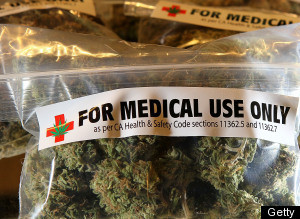With the recent release of the FBI’s 2009 Uniform Crime Report numbers, the Crime and Marijuana Chapters of Drug War Facts have been updated with these additions:
Fact 2. (2009, 2008, 2007, 1973 – drug arrests) “In 2009, arrests for drug law violations declined slightly (-2.3%) to 1,663,582. A small decrease also occurred in alcohol violations to 1,440,409 for Driving under the influence, 570,333 for liquor law violations, and 594,300 for drunkenness. Violent crime arrests in 2009 equaled 581,765, with 1,728,285 arrests for property crimes. Arrests for all offenses totaled 13,687,241, down -2.3% over 2008.”
Fact 3. (1980-2009 – total, marijuana and drug arrests by year) “Although the intent of a “War on Drugs” may have been to target drug smugglers and ‘King Pins,’ over half (51.6%) of the 1,663,582 total 2009 arrests for drug abuse violations were for marijuana — a calculated total of 858,408. Of those, an estimated 758,593 people (45.6%) were arrested for marijuana possession alone. By contrast in 2000, a total of 734,497 Americans were arrested for marijuana offenses, of which 646,042 were for possession alone.”
This aforementioned table lists Total Arrests, Total Drug Arrests, Total Marijuana Arrests, Marijuana Trafficking/Sale Arrests, Marijuana Possession Arrests, Total Violent Crime Arrests, and Total Property Crime Arrests by year since 1995 and including numbers for 1990 and 1980. All of these values have been validated against their source reports, with each of their URLs referenced in the citation … that’s with the exception of 1990 and 1980, which are only available by hard copy.
Fact 4. (1995-2009 – marijuana arrests percent share of total drug arrests by year) “The following table references the drug and marijuana arrests columns in the “US Arrests” table. It pairs “Total Marijuana Arrests,” “Marijuana Trafficking/Sale Arrests,” and “Marijuana Possession Arrests” against “Total Drug Arrests” to arrive at the percentage each has of the total for the respective years. This table shows the growing dominance of marijuana arrests among total drug arrests in the U.S., rising from a percentage of 39.9% of total drug arrests in 1995 to 52.6% of such arrests in 2009. Further, while arrests for sales and trafficking have wavered a few percentage points around 5-6% of total drug arrests, the numbers driving marijuana’s increased dominance of drug arrests are those for simple possession, jumping from 34.1% in 1995 to 45.6% in 2009. Arrests for marijuana possession have risen from about a third to about a half of all drug abuse violation arrests over the fifteen year 1995-2009 period.”
The referenced table lists percentages calculated form the aforementioned “U.S. Arrests” table.
Fact 5. (1996-2009 – drug and marijuana arrests percent change over prior year) “The following table references the total, drug, and marijuana arrest columns in the “US Arrests” table. It shows the percentage change over the prior year for “Total Arrests,” “Total Drug Arrests,” “Total Marijuana Arrests,” “Marijuana Trafficking & Sale Arrests,” and “Marijuana Possession Arrests.” Total Arrests in the United States have steadily hovered between 13.6 million and 15.3 million over the fourteen year period (1996-2009), with the annual percent change for that time span averaging -0.7%. Drug arrests have ranged between a low of 1.5 million in 1996 and a high of 1.9 million in 2006, with an average percent change over the fourteen year period of +0.9%. The percentage change values for marijuana arrests confirm their upward trend. Total marijuana arrests in 2009 (858,408) are +45.7% higher than those in 1995 (588,964). The year that the percentage growth in marijuana arrests peaked – 2003 – began a five-year upward trend largely driven by arrests for marijuana possession. For simple possession, the average annual percent change covering 1996-2009 equaled +3.1%; in contrast, that value for trafficking and sales was +1.3%.”
This table, too, references the “U.S. Arrests” table.
These FBI tables and reports document that marijuana has been THE target of the drug war. It is tragic to note that marijuana trafficking and sales arrests stood at their highest value ever of 99,815 for 2009, a +6% increase over 2008. The arrests for marijuana possession of 758,593 in 2009 represented the second highest value in their category.
Source: “Crime in the United States 2009,” FBI Uniform Crime Report (Washington, DC: US Dept. of Justice, September 2010), Table 29, and Arrest Table: Arrests for Drug Abuse Violations, .

